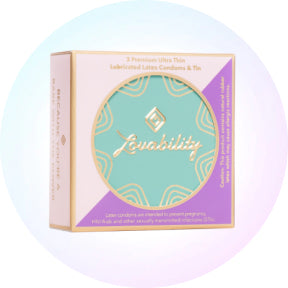Resources — STIs
Why We Have Sex Without A Condom
Despite knowing that condoms are the only contraception which provide a high degree of protection against both unintended pregnancy and sexually transmitted infections (STIs), we often have sex without a condom. Why? And, more importantly, how might we change that going forward?Condoms and Sexual Health: The Role of Regular Testing
Let's dive into a topic that's crucial for our sexual health and well-being: condoms and the importance of regular testing. As a woman who values empowerment and taking control of my sexual health, I believe it's essential to have open and honest conversations about the role of condoms and regular testing in maintaining our sexual wellness.
Regular Testing For Our Sexual Health
So, let's explore why regular testing is vital for our sexual health and how condoms play a key role in protecting ourselves and our partners.
Testing For STIs
First, let's address the importance of regular testing for sexually transmitted infections (STIs). Many STIs, such as chlamydia, gonorrhea, and syphilis, can often be asymptomatic, meaning they show no noticeable symptoms. Without regular testing, these infections can go undetected and untreated, leading to potential health complications and increased risk of transmission to sexual partners.
Benefits of STI Testing
Regular testing allows us to take proactive steps to protect our health and the health of our partners. By knowing our STI status, we can seek timely treatment if necessary and take appropriate precautions to prevent transmission to others. This includes using condoms consistently and correctly during sexual activity, as condoms are highly effective in reducing the risk of STI transmission when used consistently and correctly.
Testing In A Monogamous Relationship
Now, you might be wondering, "But what if I'm in a monogamous relationship?" While being in a monogamous relationship can reduce the risk of STI transmission, it's still important to prioritize regular testing as part of our overall sexual health routine. STIs can still be present without showing symptoms, and the only way to know for sure is to get tested regularly, ideally before starting a new sexual relationship and periodically thereafter.
Breaking The Stigmas Around STI Testing
Regular testing also helps to break down the stigma surrounding STIs and sexual health. By normalizing conversations about testing and encouraging open communication with sexual partners, we can create a supportive and nonjudgmental environment where everyone feels comfortable discussing their sexual health needs and concerns. This includes being honest with our partners about our testing history and encouraging them to get tested as well.
How Condoms Protect Us During Sex
Now, let's talk about the role of condoms in protecting ourselves and our partners during sexual activity. Condoms are a highly effective method of preventing STI transmission when used consistently and correctly. They create a barrier that helps to prevent the exchange of bodily fluids, including semen, vaginal fluids, and blood, which can contain STIs.
Using condoms not only protects us from STIs but also reduces the risk of unplanned pregnancies. Condoms are one of the most accessible and affordable forms of contraception available, making them an essential tool for reproductive health and family planning. By incorporating condoms into our sexual routine, we can take control of our reproductive choices and protect ourselves from unintended pregnancies.
Birth Control Alternatives To Condoms
But what if you or your partner doesn't like using condoms? It's important to have open and honest conversations about sexual health and contraception with our partners. If condoms are not preferred, there are other contraceptive options available, such as birth control pills, patches, or implants, that can provide effective protection against pregnancy when used correctly.
Condoms play a crucial role in protecting ourselves and our partners from STIs and unplanned pregnancies. When used consistently and correctly, condoms are highly effective in reducing the risk of STI transmission and preventing unintended pregnancies. However, regular testing is also essential for maintaining our sexual health and well-being, as it allows us to know our STI status and take proactive steps to protect ourselves and our partners.
So, let's continue to prioritize regular testing and condom use as part of our overall sexual health routine, because taking care of ourselves and our partners is the ultimate act of self-love and respect.









